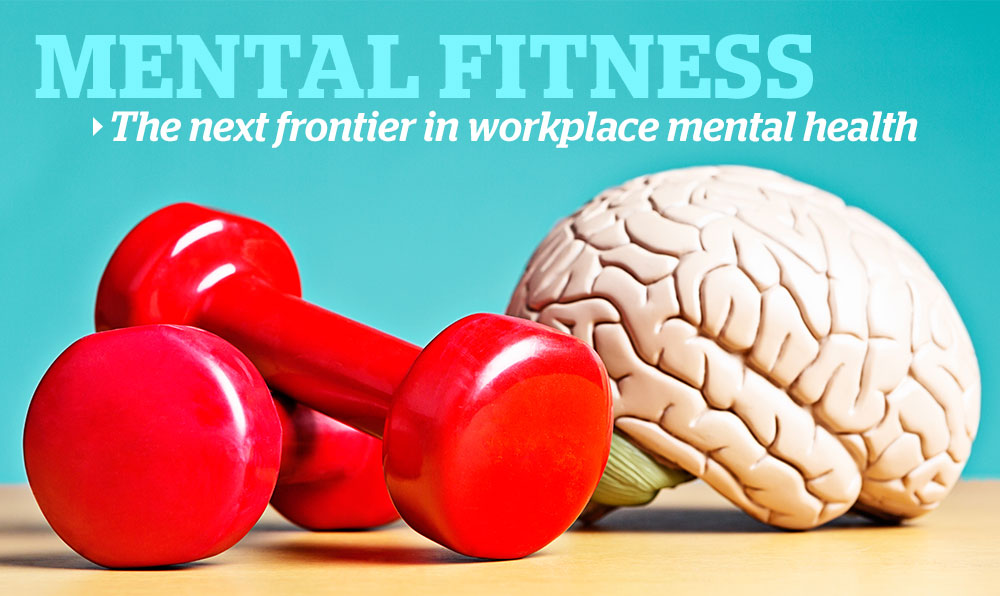

Columns/Blogs
Features
Mental Health
How you want to show up depends on you
By Bill Howatt

EDITOR’S NOTE: ‘Mental Fitness: The next frontier in workplace mental health’ is a weekly series, in partnership with Dr. Bill Howatt of Howatt HR Consulting in Ottawa. This series takes a deeper look at mental fitness — an approach to prevent mental harm and promote mental health.
“Being human is amazing! However, we all know it does not come without challenges, those that are planned (for example: parenting) and ones we did not anticipate or see coming. It is up to us to determine how we want to show up each day.” — Dr. Bill Howatt
Mental health can be fragile when your subjective reality (how you want your world) is compromised or disrupted.
Because you can only control your own behaviour, the probability of feeling stressed because of others’ actions is high. How you respond depends on your commitment or desire to define how you want to show up for yourself and others.
This microskill introduces three factors that predict how you show up under pressure. There is no expectation that you will be perfect. You will make mistakes and hopefully learn from them. And there is no magic pill; it requires humility and empathy.
The more you become aware and accountable and practise the following model, the higher the likelihood you will show up as you want. And the more you learn to show up the way you want, the more likely you will believe you can be who you want to be.
Also, others will feel less anxious or concerned about how you will react under pressure. This will serve you well in your personal and professional relationships.
Taking charge of how you show up
One way to shape how you show up is to accept your role. Most people react to life events, rather than taking responsibility for how they show up and own them. You can improve how you show up, provided you are open to learning; patient, as creating new habits takes time; and non-judgmental, as being hard on yourself creates negative self-beliefs.
Being mindful and paying attention to how you show up each day and how well you execute each of the three factors can get you closer to showing up in a way you feel proud.
Feeling in control of thoughts, emotions, and behaviours is a wonderful experience and good for self-confidence and mental health.
Three factors that influence how you show up
Positive mindset: It is impossible to have 100-per cent positive thoughts, but the more positive thoughts you have about yourself and others, the better. Paying attention to what you say to yourself and think about others matters, as it programs your belief system.
Calm under pressure: Negative emotions can spark fear. However, when there is no lethal threat, you can notice them and be curious as to what triggered them. A positive emotion does not mean you need to feel out of control, yelling because you are happy. Nor does a negative emotion require any additional intensity than noticing it with a commitment to remain calm so your energy can be focused on your response.
Secure: The more secure you are with your thoughts and emotions, the higher the likelihood you can respond in a secure manner. A non-secure response puts the focus on self, resulting in defending or making a judgement about another person. A secure response puts the focus on the other person and looks past the negative emotion to understand their position. The goal is to allow them to feel heard and understood.
The readiness model
For this model to work, you must be comfortable responding with yes to each statement in the following table.
Once you can say yes to each, your next step is to practise.
| What you believe to be true | Positive mindset | Calm under pressure | Secure response |
| Statements | I have a choice about what I think about myself and others. | I have a choice about how I respond emotionally. | I have a choice about how I respond under pressure. |
| Response | Yes or No | Yes or No | Yes or No |
Practice creates learning
To master how you want to show up requires practice, self-reflection, and honest self-appraisal.
After each event, complete a log of how you showed up. Notice the percentages. Be mindful that most events happen over a period and have a few different exchanges.
For example, a conflict with a peer over a project ran over two days. Your log is a summary of this event, not every interaction.
Practice creates learning and if you keep struggling with any factor, it is helpful to explore what training or support is available to acquire the knowledge and skills you need. The Mental Fitness Lab is a place where an employee can go to obtain microskills and insights to better manage their thoughts and emotions.
Event log
Situation (high-level overview of the situation)
People involved:
| Factor | Response | Next time I can improve | |
| Positive mindset | % positive | % negative | |
| Calm under pressure | % calm | % upset | |
| Secure response | % secure | % unsecure | |
 Dr. Bill Howatt is the Ottawa-based president of Howatt HR Consulting and the former Chief of Research and Workforce Productivity at The Conference Board of Canada.
Dr. Bill Howatt is the Ottawa-based president of Howatt HR Consulting and the former Chief of Research and Workforce Productivity at The Conference Board of Canada.
If there is a particular microskill or topic you would like to see Dr. Howatt write on that supports employees’ mental health in the workplace, please send your request to Talent Canada editor Marcel Vander Wier.
Print this page